
Envision 2023 a rich mix of teachings, lectures and field trips
Published on: 8.2.2023By: Annaliese Johnson, ICEJ Staff Writer
For the first time in three years, Christian pastors and leaders were able to gather in person in Israel last week for the ICEJ’s annual Envision Pastors and Leaders Conference, a four-day gathering that drew 100 delegates from 25 countries up to Jerusalem, while another 130 joined online. Held from 30 January to 2 February, Envision 2023 featured prominent Christian and Jewish speakers from Israel and abroad giving rich biblical teachings and informative briefings on current events, along with visits to key sites in Israel.
In addition to the day excursions, Envision participants heard much about the resilience and ingenuity of modern Israel, as well as many biblical and prophetic truths on how the Church should rightly relate to the Jewish state and people. There seemed to be a common thread running through many of the presentations concerning the divisions between Israel and the Church in the past and the work of the Holy Spirit to bring us into greater unity today, so we all are ready to receive Jesus – the Jewish Messiah and King.
One speaker, for instance, mentioned how the Menorah was required to be made from one piece of gold, representing the ‘oneness’ of Israel. Then a separate speaker explained that while there were twelve tribes, each with their own stone, there was one High Priest wearing one breastplate with all twelve stones and standing before the presence of God, again symbolizing the unity of the nation. The overriding message was that the Lord was bringing Jewish and Gentile believers into unity and reconciliation through Christ.
The lectures on current events addressed a variety of topics, including Israel’s role in the global energy crisis, the new Israeli government, the Abraham Accords, the Iranian threat, and other regional geo-strategic issues.
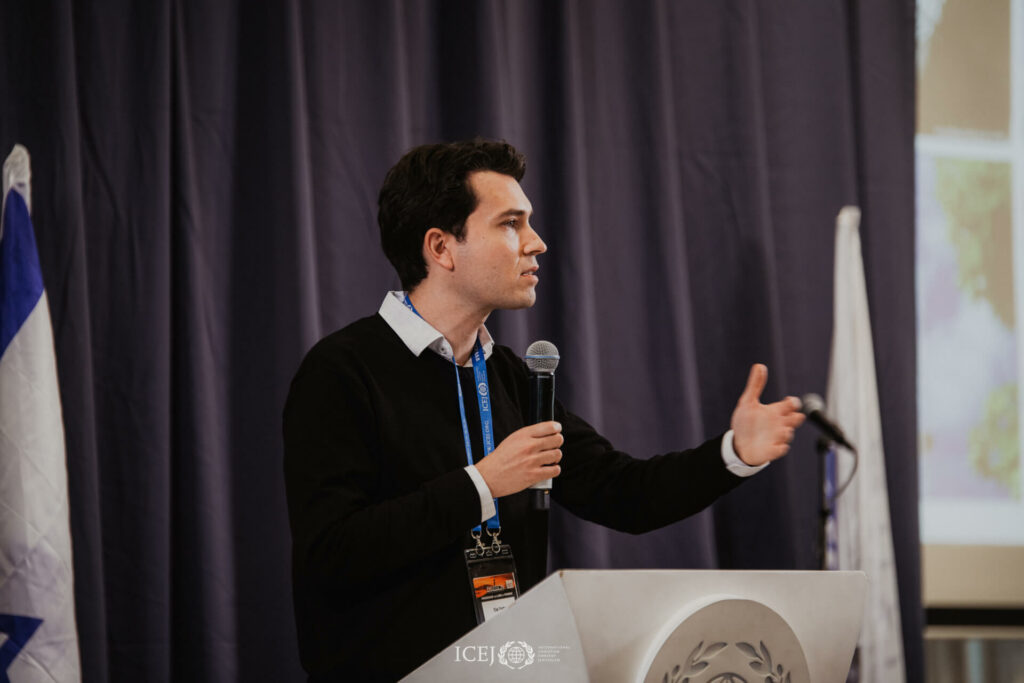
According to Asst. Prof. Elai Rettig of Bar-Ilan University, 81 percent of the world’s current energy consumption is met through fossil fuels (coal, oil and natural gas), a percentage which basically has not changed since the 1970s, meaning there has been little real progress in transitioning to renewal sources of energy. He added that Israel is a world leader in developing and using solar energy, but solar panels take up vast amounts of space, a problem which Israeli researchers are trying to overcome. He added the large natural gas fields found offshore also have turned Israel into a serious energy supplier, with positive dividends especially in the region.
Gil Hoffman, a longtime political correspondent for The Jerusalem Post and now CEO of Honest Reporting, gave an overview of Israel’s new government and why the hyped concerns about it being too far-right do not match the reality.
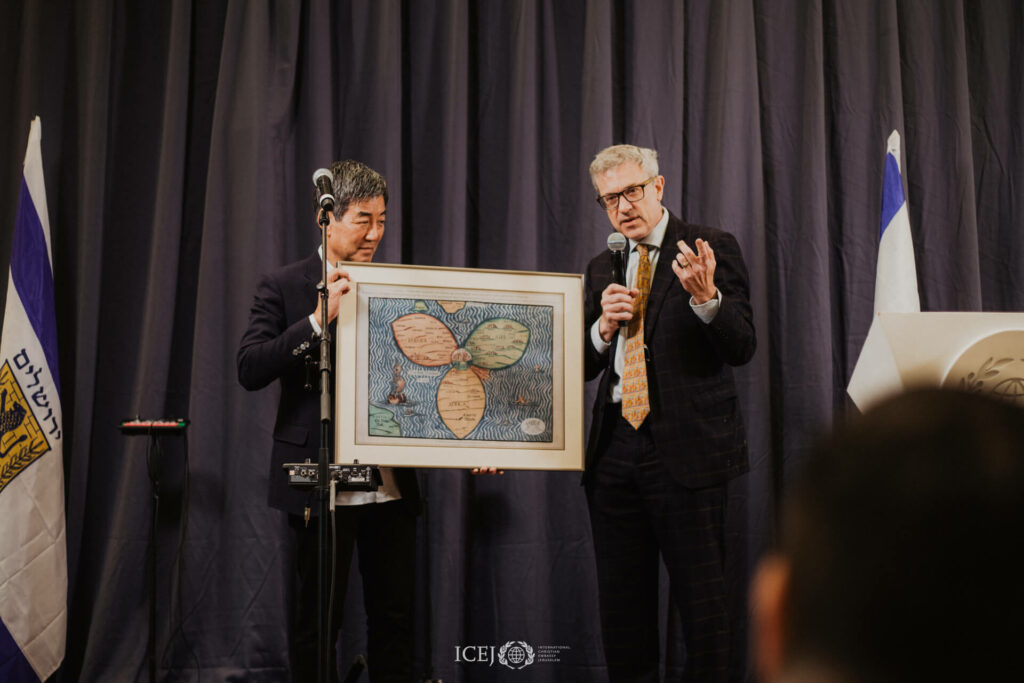
Dr. Dan Diker, President of the Jerusalem Center for Public Affairs, spoke about Israel’s geo-strategic position and faith-based diplomacy. He compared the Abraham Accords breakthrough today with the Khartoum resolutions of 1967, when the Arab world collectively declared “no peace, no recognition, and no negotiations with Israel.” Diker also noted that Israel is encircled by Iranian missiles and proxy militias in Lebanon, Syria and Gaza, yet it faces an even bigger threat from the Palestinian Authority due to its delegitimization campaign and slanderous accusations of racism, genocide and apartheid in the international arena. Decades before the Kremlin’s recent “Nazification” of Ukraine, he added, the Soviet propaganda machine already was working with the PLO to “Nazify” the Jewish state.
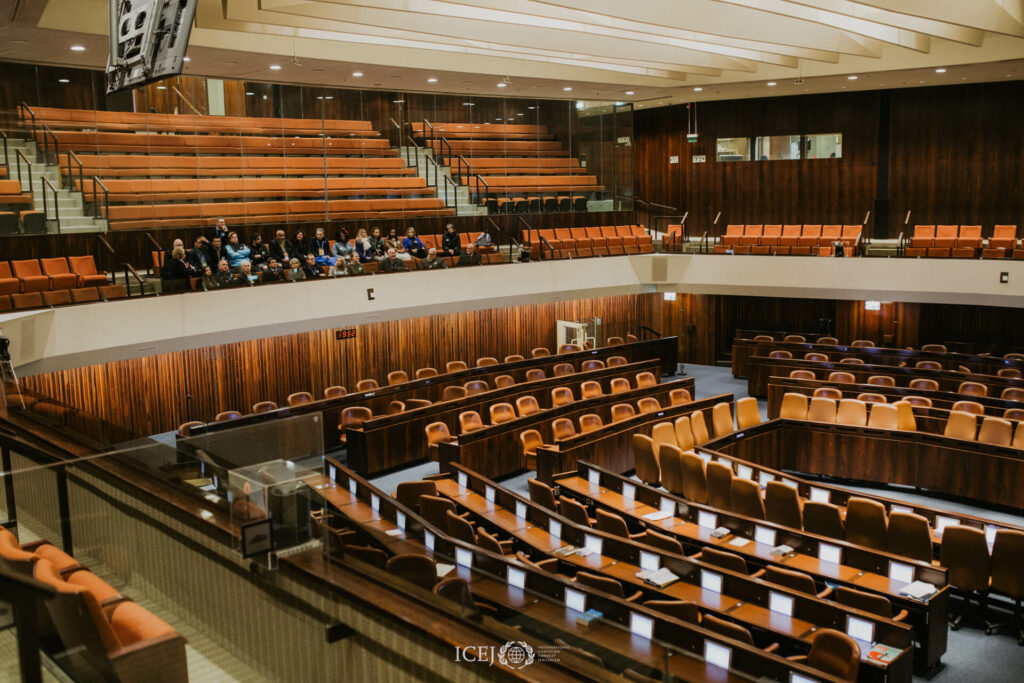
Meanwhile, Envision delegates made several field trips, starting with a visit to the Knesset – home to Israel’s parliament. The visit came just two weeks before the 74th anniversary of the first Knesset assembly, held on the Jewish holiday of Tu Bishvat in 1949. Delegates especially enjoyed seeing the main assembly hall where parliamentary sessions take place and every word is permanently recorded. Here, the designated seats for members of the coalition and opposition take the shape of a Menorah, the official emblem of Israel, while balconies allow foreign leaders, the press and other guests to observe the proceedings.
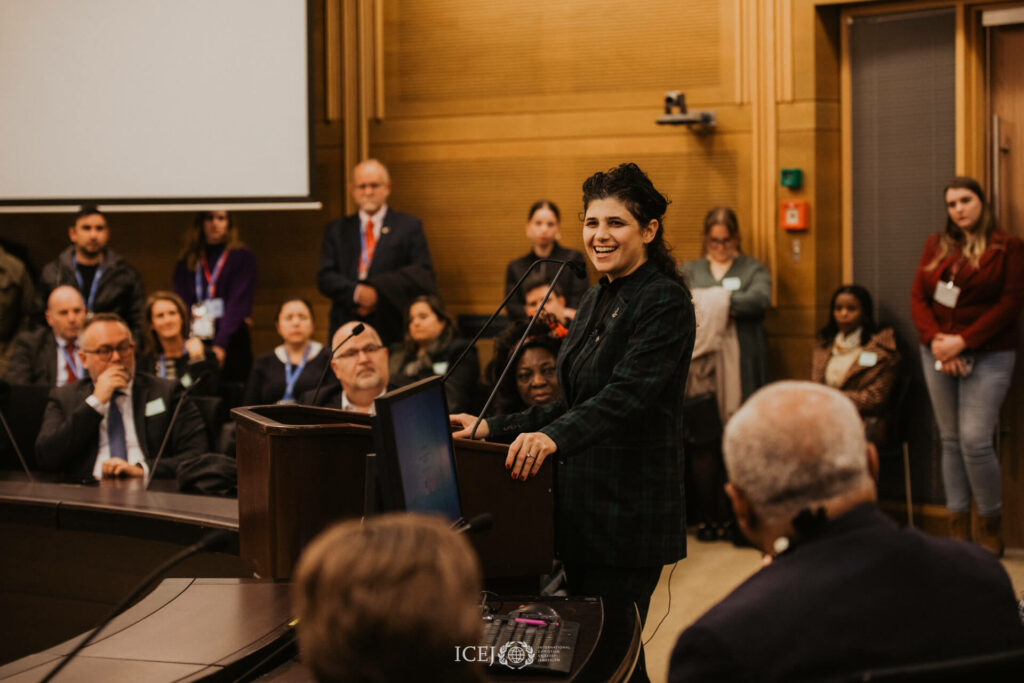
After the guided tour of the building, participants had a private meeting with Member of Knesset Sharren Haskel, co-chair of the Knesset Christian Allies Caucus. A former combat soldier who has served in the Knesset for seven years, she explained how the Jewish people have had to survive generation after generation in countries that tried to destroy them. Therefore, MK Haskel stressed, it is important that Israel’s fate rests in the hands of Israelis and not the international community. A passionate speaker, Haskel urged the Christian leaders to testify as to what Israel really is – an imperfect but great example of peoples and minorities living side by side in peace. Asked by a pastor about how she imparts the idea to her children that God fights Israel’s battles, Haskel responded that she accomplishes this simply by raising them in the Promised Land – where each day is an absolute miracle.
The Envision group also made an excursion to the biblical heartland of the Shomron (Samaria) to visit Ariel University, which proudly identifies as a “Zionist and Jewish university.” With a diverse student body of 17,000, including many Arabs, along with 500 faculty members and 2,700 employees, the university is rising in name and influence in the region. It boasts the only university-based wine research center, world expertise on mini-particle accelerators, the largest pediatrics provider in Israel, and a reputation for representing Israel’s past, present and future.
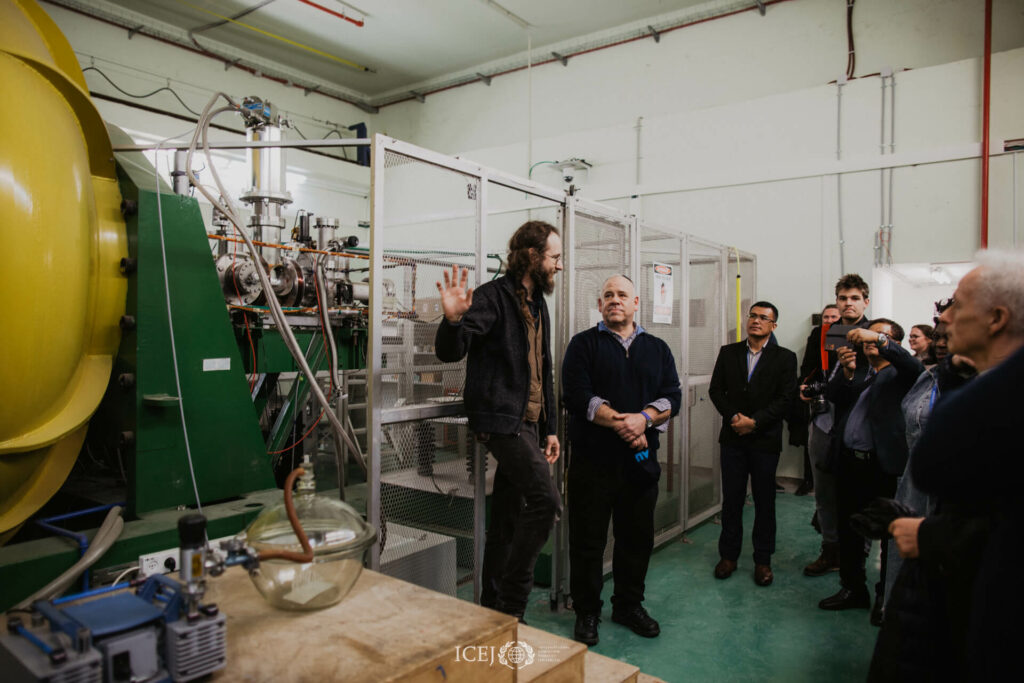
Delegates visited the Schlesinger Center medical research clinic, home to the “yellow submarine” accelerator with the power of 1.5 million volts, as well as the Multidisciplinary Center for developing self-driving vehicles. The university is ranked as Israel’s second-best school for engineering, right behind the Technion, and sends many graduates into the flourishing hi-tech field.
Ariel University’s wine research center also is truly unique, as its students and staff are currently reviving some 300 ancient native strains of wine-producing grapes dating back as far as 3,000 years ago.
Delegates left Ariel University with an increased understanding of the school’s purpose, goals and importance not only in education but also Israeli life in general.
On the final afternoon of Envision, the pastors and ministry leaders also visited the City of David, where new discoveries are being made every day regarding Israel’s rich biblical heritage. This includes David’s Palace, the Gihon Spring, what is believed to be Melchizedek’s altar, plus Hezekiah’s tunnel, the Pool of Siloam, and the Pilgrim’s Road leading up to Herod’s Temple.
The field trips, lectures and Bible teachings left a deep impression on the pastors and ministry leaders attending this year’s Envision conference, and word got out quickly concerning the high quality of the content delivered by our featured speakers. So, the ICEJ has decided to extend the registration period for the basic online conference package until 28 February and open up registration to everyone. All the messages are now available as VOD sessions. Register or find out more at envision.icej.org